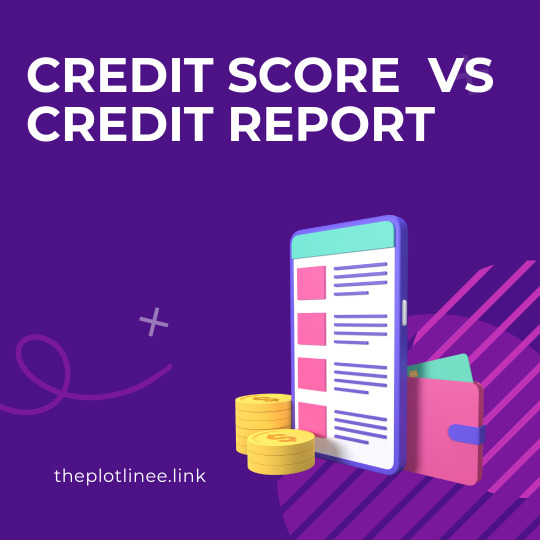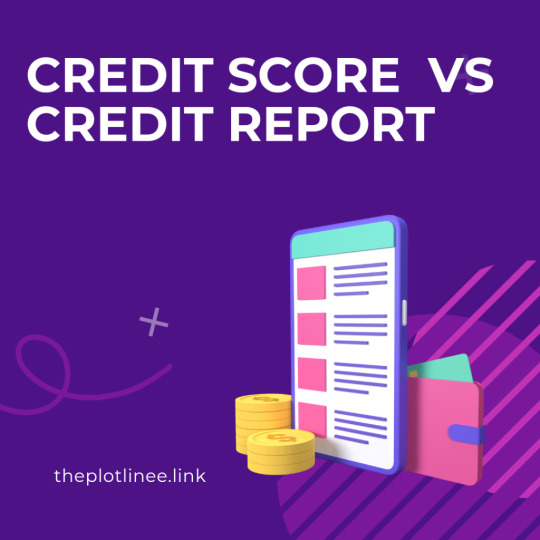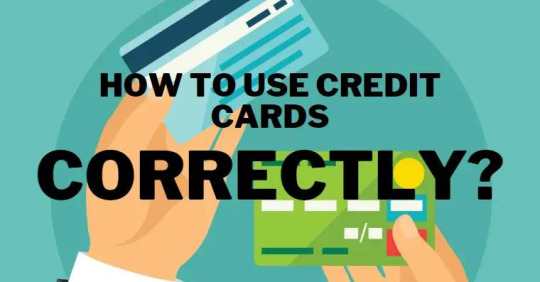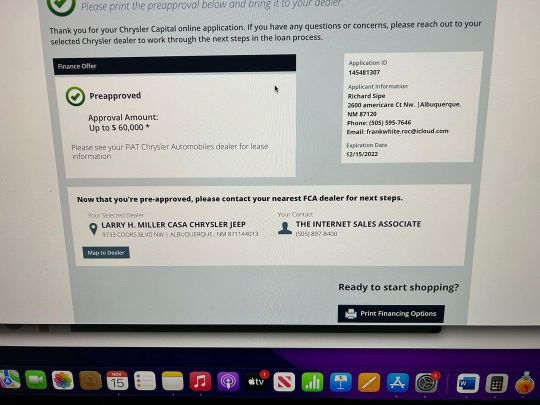#creditreport
Photo

Lending institutions are facing the heat with many accounts turning into Non-Performing Assets (NPA) post-pandemic. The difficulty in money recovery and uncertain cash flow is a huge deterrent to financing companies and banks in India, affecting balance sheets and bottom lines.
One of the major roadblocks in the process of debt recovery is the absence of deep collaboration between the borrower, & the collection & recovery teams
Enroll with Wagons Credit Collection and Recovery Skills Program, and learn about effective communication for result-oriented engagement and different ways to implement variation in relationship styles based on customer cohorts.
Program timings :-
06th Nov | 6 hours | 10am-1pm, 2pm-5pm
13th Nov | 6 hours | 10am-1pm, 2pm-5pm
20th Nov | 6 hours | 10am-1pm, 2pm-5pm
27th Nov | 6 hours | 10am-1pm, 2pm-5pm
Click on the link below to register 🔗
https://wagonseducation.com/home/course/credit-collection-and-recovery-skills-level-2/102
For more information visit:
https://www.wagonslearning.com/
#collectionagents#recoveryagents#creditreport#consumerdebtrecovery#creditrecovery#baddebts#debtcollection#risk#compliance#creditscore#learning#elearning#wagonslearning#wagonseducation#financialservices
2 notes
·
View notes
Text
🔍 Understanding Your Credit Score 🔍
Ever wonder what that mysterious number means? 🤔 Your credit score is a key factor in your financial health and can impact everything from getting approved for a loan to securing a rental apartment. Here's the lowdown:
1️⃣ What is a credit score? It's a numerical representation of your creditworthiness, based on your credit history. Scores typically range from 300 to 850.
2️⃣ How is it calculated? Factors like payment history, credit utilization, length of credit history, types of credit accounts, and recent inquiries all play a role.
3️⃣ Why does it matter? Lenders, landlords, and even employers may use your credit score to assess your reliability. The higher your score, the more likely you are to be approved for favorable terms.
4️⃣ How can you improve it? Pay bills on time, keep credit card balances low, maintain a mix of credit accounts, and avoid opening too many new accounts at once.
Understanding your credit score is the first step toward financial empowerment! 💪 Stay tuned for more tips on mastering your finances. 💳📈
#CreditScore #CreditRating #FinancialHealth #CreditHistory #CreditWorthiness #PersonalFinance
#thearaizas#realestate#arizona#instagramaz#phoenixarizona#az#phoenix#realtorsofinstagram#EmpowerYourFinances#Finance101#CreditScoreGoals#CreditReport#CreditMonitoring#CreditEducationMonth#FinancialFreedom#MoneyTalks#FinancialGoals#CreditGoals#MoneyManagement#BudgetingTips#DebtFreeJourney#SmartSpending#FinancialWellness#MoneyMatters#CreditRepair#CreditBuilding#FinancialLiteracy#CreditAwareness#CreditManagement#CreditTips
0 notes
Link
Explained: Credit report vs. credit score
0 notes
Text

Best credit Report Repair Services in Alabama
800 Credit Now offers professional Credit Report Repair Services to help individuals improve their credit scores. Our expert team works diligently to identify and address inaccuracies, disputes, and negative entries on your credit report, aiming to restore your financial health and unlock new opportunities. Trust 800 Credit Now to guide you on the path to a better credit future.
1 note
·
View note
Text
Credit Score vs Credit Report: Know the difference for financial success
9


In the world of personal finance, the terms "Credit Score" and "Credit Report" are often used interchangeably, but they hold distinct roles in shaping your financial journey. Understanding the nuances between the two is crucial for making informed decisions that can impact your financial success.
Introduction
Credit Score and Credit Report play pivotal roles in your financial life, influencing everything from loan approvals to job opportunities. This article aims to demystify the differences between them, providing you with a comprehensive understanding of their individual significance.
Importance of Credit Knowledge
Financial decision-making
Your credit health is a key player in the financial decisions you make. Whether it's purchasing a home, financing a car, or applying for a credit card, your credit score and report are often scrutinized by lenders. Being well-informed empowers you to make strategic choices aligned with your financial goals.
Understanding Credit Score
Factors influencing credit score
Your credit score is a numerical representation of your creditworthiness. Several factors, including payment history, credit utilization, and length of credit history, contribute to this three-digit number. Understanding these factors allows you to take proactive steps in improving your creditworthiness.
Credit Report Overview
Components of a credit report
While your credit score is a summary, your credit report provides a detailed history of your credit activities. It includes information about your credit accounts, payment history, outstanding debts, and any public records. Regularly reviewing your credit report is essential for spotting errors and ensuring accuracy.
Why Credit Score Matters
Impact on loan approvals
Lenders use your credit score as a quick reference to assess your credit risk. A higher credit score increases your chances of loan approval and favorable interest rates. This section explores the significance of a good credit score in securing loans for major life expenses.
Building a Good Credit Score
Tips and strategies for improvement
Improving your credit score is a gradual process that requires discipline and strategic planning. This section provides actionable tips for boosting your credit score, from timely payments to managing credit balances effectively.
Reading and Interpreting Credit Reports
Identifying errors and discrepancies
Errors in your credit report can adversely affect your credit score. Learning how to read and interpret your credit report enables you to identify inaccuracies promptly. We'll guide you through the process of disputing errors and maintaining an accurate credit history.
Credit Score Myths and Facts
Common misconceptions clarified
Misconceptions about credit scores abound. In this section, we debunk common myths, providing clarity on what truly affects your credit score and what doesn't. Dispelling these myths is essential for making informed financial decisions.
Credit Score Ranges and Categories
What different score ranges mean
Credit scores fall within specific ranges, each indicating a different level of creditworthiness. This section breaks down the various score categories, helping you understand where you stand and what steps you can take to move to a higher category.
Credit Report Frequency
How often to check your credit report
Regularly monitoring your credit report is a proactive measure to safeguard your financial well-being. This section discusses the optimal frequency for checking your credit report and the benefits of staying vigilant about your credit information.
Credit Monitoring Services
Benefits and considerations
Credit monitoring services offer an additional layer of protection against identity theft and fraudulent activities. We'll explore the benefits of these services and provide considerations for choosing the right one for your needs.
Credit Score vs. Credit Report
Key distinctions between the two
While both are integral to your financial health, your credit score and credit report serve different purposes. This section outlines the key distinctions between the two, offering clarity on when and why each is crucial.
Improving Credit for Financial Success
Long-term strategies for financial health
Building and maintaining good credit is a journey, not a destination. This section delves into long-term strategies for sustaining a healthy credit profile, ensuring your financial success in the years to come.
Credit Score and Employment
The impact on job opportunities
Some employers consider credit history when making hiring decisions. This section explores the connection between credit scores and job opportunities, providing insights into how you can navigate this aspect of your professional life.
FAQ Section
Common questions about credit
- How often should I check my credit score and report? Regular monitoring is advisable, at least once a year, or before major financial decisions.
- Can I improve my credit score quickly? While some improvements can happen fast, significant changes take time and consistent effort.
- Do credit reports include information on closed accounts? Yes, closed accounts are typically included in your credit report.
- What is a good credit score range for loan approvals? Generally, a score above 700 is considered good for favorable loan terms.
- How long do negative items stay on a credit report? Most negative items stay on your report for seven years.
- Can I dispute errors on my credit report myself? Yes, consumers have the right to dispute inaccuracies on their credit reports.
Conclusion
In conclusion, mastering the differences between Credit Score and Credit Report is essential for achieving financial success. By implementing the insights shared in this article, you'll be better equipped to navigate the complex world of credit, making informed decisions that positively impact your financial future.
Read the full article
0 notes
Text
FICO Scores: Understanding the Factors that Affect Your Credit
Have you ever wondered why your credit score fluctuates? A FICO score is not just a number; it’s a snapshot of your financial responsibility. Your FICO score represents your creditworthiness and plays a vital role in many life decisions. From buying a house to leasing a car, your credit score can either be your best friend or your worst nightmare. Understanding how this three-digit number is…

View On WordPress
0 notes
Text
From Limited to Limitless: Elevate Your Credit Limit in Glendale, AZ

Are you looking to Increase your credit limit in Glendale, AZ? Having a higher credit limit can provide you with more financial flexibility and freedom. Whether you're planning a big purchase, dealing with unexpected expenses, or simply want to have a higher credit cushion, elevating your credit limit can be a beneficial move. In this article, we will explore the steps you can take to increase your credit limit and enjoy the advantages that come with it.
Understanding Credit Limits
Credit limits refer to the maximum amount of credit a lender extends to a borrower. It represents the highest balance you can carry on your credit card or line of credit. Credit limits are determined by various factors, including your creditworthiness, income, and financial history. Lenders use credit limits as a measure of risk and to ensure borrowers can manage their debt responsibly.
Importance of a Higher Credit Limit
Having a higher credit limit offers several advantages. Firstly, it provides you with increased purchasing power, allowing you to make larger transactions or handle unexpected expenses. Secondly, it improves your credit utilization ratio, which is the amount of credit you use compared to your total available credit. A lower credit utilization ratio can positively impact your credit score. Lastly, a higher credit limit demonstrates to lenders that you are a responsible borrower, which can lead to better loan terms and interest rates.
Assessing Your Current Credit Situation
Before seeking to elevate your credit limit, it's crucial to assess your current credit situation. Review your credit reports from the major credit bureaus (Experian, Equifax, and TransUnion) to ensure accuracy and identify any areas for improvement. Check your credit score to understand where you stand and determine the likelihood of approval for a credit limit increase.
Building a Strong Credit History
To enhance your chances of getting a credit limit increase, focus on building a strong credit history. Make timely payments on all your debts and obligations. Aim to keep your credit utilization ratio below 30%. Avoid opening multiple new credit accounts in a short period, as this can raise concerns for lenders. Establishing a solid credit history takes time and discipline but is essential for improving your creditworthiness.
Requesting a Credit Limit Increase
When you're ready to request a credit limit increase, reach out to your credit card issuer or lender. Some financial institutions provide an online portal for such requests, while others require you to call their customer service. Be prepared to provide necessary information such as your income, employment details, and the reason for your credit limit increase. It's important to have a compelling case for the increase, such as an improved credit score, increased income, or a positive payment history.
Factors Influencing Credit Limit Approval
Several factors influence the approval of a credit limit increase. Lenders consider your credit score, income, debt-to-income ratio, and credit history. A higher credit score indicates a lower credit risk and increases the likelihood of approval. Lenders also evaluate your income to assess your ability to repay debt. Additionally, a lower debt-to-income ratio demonstrates financial stability and responsible money management.
Maintaining a Good Credit Utilization Ratio
Keeping your credit utilization ratio low is crucial when aiming for a credit limit increase. Lenders prefer borrowers who use a smaller percentage of their available credit. To achieve this, avoid maxing out your credit cards and aim to pay off balances in full or keep them as low as possible. By maintaining a low credit utilization ratio, you demonstrate responsible credit management and improve your chances of obtaining a higher credit limit.
Paying Bills on Time
Consistently paying your bills on time is essential for a healthy credit history. Late payments can negatively impact your credit score and make lenders hesitant to increase your credit limit. Set up payment reminders, automate your bill payments, or use online banking to ensure timely payments. By establishing a track record of on-time payments, you exhibit financial responsibility and increase your creditworthiness.
Monitoring Your Credit Report
Regularly monitoring your credit report allows you to stay informed about your credit health. Keep an eye out for errors, unauthorized accounts, or suspicious activity that could impact your creditworthiness. Reporting inaccuracies promptly to the credit bureaus can help maintain the integrity of your credit report and ensure accurate assessment by lenders.
The Role of Credit Score
Your credit score plays a significant role in determining your eligibility for a credit limit increase. A higher credit score suggests responsible credit behavior and makes you a more attractive candidate for lenders. To boost your credit score, pay bills on time, keep credit card balances low, and refrain from opening unnecessary credit accounts. Improving your credit score not only increases your chances of a credit limit increase but also opens doors to better financial opportunities.
Seeking Professional Assistance
If you're facing challenges in elevating your credit limit, seeking professional assistance can be beneficial. Credit counseling agencies and financial advisors can provide guidance and strategies for improving your creditworthiness. They can review your credit reports, analyze your financial situation, and offer personalized advice to help you achieve your credit goals.
Avoiding Common Mistakes
When pursuing a higher credit limit, it's crucial to avoid common mistakes that can hinder your progress. These include maxing out credit cards, applying for multiple credit limit increases simultaneously, and neglecting to monitor your credit reports. By being mindful of these mistakes, you can maintain a positive credit trajectory and increase your chances of success.
Benefits of a Higher Credit Limit
Enjoying a higher credit limit offers several benefits beyond increased purchasing power. It allows you to have a greater financial safety net for emergencies, covers unexpected expenses, and provides flexibility for significant life events. Moreover, a higher credit limit contributes to improving your credit score and opens doors to better financial opportunities in the future.
Responsible Credit Limit Usage
While a higher credit limit can be advantageous, it's crucial to use it responsibly. Avoid overspending or accumulating excessive debt simply because you have a higher credit limit. Maintain a healthy balance between your credit utilization ratio and your income. Responsible credit usage ensures that you can manage your debts effectively and maintain a positive financial outlook.
Conclusion
Increasing your credit limit in Glendale, AZ, can provide you with financial flexibility and numerous benefits. By understanding the factors that influence credit limit approval, building a strong credit history, and adopting responsible credit practices, you can elevate your credit limit and enhance your financial well-being. Remember to monitor your credit reports regularly, maintain a good credit score, and seek professional assistance when needed. With careful management and responsible credit usage, you can go from limited to limitless.
FAQs
1. How long does it take to increase my credit limit?
The timeline for credit limit increases varies depending on the lender. Some may grant an increase immediately, while others require a waiting period. Contact your credit card issuer or lender for specific details.
2. Will requesting a credit limit increase affect my credit score?
Requesting a credit limit increase may result in a hard inquiry on your credit report, which can have a slight impact on your credit score. However, the benefits of a higher credit limit generally outweigh this minor effect.
3. Can I request a credit limit increase if I have a low credit score?
While it may be more challenging to secure a credit limit increase with a low credit score, it's not impossible. Focus on improving your credit score by making timely payments and reducing your debt before applying.
4. How often should I check my credit reports?
It's recommended to check your credit reports from each major credit bureau at least once a year. Regular monitoring can help you catch errors and identify areas for improvement.
5. Is there a maximum credit limit I can obtain?
The maximum credit limit varies depending on your income, creditworthiness, and the policies of the lender. Some individuals may qualify for higher limits, while others may have limits based on their financial situation. Call today at (888) 803-7889 for a free consultation. We look forward to helping you, Bloom!
#CreditReport#creditmonitoringservice#creditutilization#MixofCreditTypes#Bankruptcy#increasingyourcreditlimit#CreditLawyer#BuildCreditFast
0 notes
Text
DR. CREDIT REPAIR LLC. | “Bad Credit Call The Doctor!” | (305) 925-2473 | [email protected] |www.drcreditrepairs.com | Best Results Guaranteed Always…
#drcreditrepair #credit #creditrepair #creditrepairservices #credittips #creditcard #creditscore #yourjobisyourcredit #creditrestoration #creditreport #creditmatters #creditispower #credito #creditgoals #creditagent
#creditcardrepair #creditrepair #creditrepairspecialist #creditrepairservices #credit #creditcard #fixmycredit #creditrepairagent #creditscore #credittips #creditrestoration #creditmatters #highbalancecreditcard
#creditcarddebt #creditscoreincrease
#credit#creditrestoration#drcreditrepair#bankruptcy#collections#creditcard#creditgoals#creditmatters#credito#creditrepair#creditrepairservices#creditscore#credittips#studentloan#chargeoff#creditagent#creditispower#creditreport#debt#foreclosure
0 notes
Text
How to improve your credit score fast

Strategies for Boosting Your Credit Score Rating Quickly
Improving your credit score is critical for your financial well-being. Your credit score affects your ability to get approved for credit cards, loans, and mortgages. It also determines the interest rates and terms you receive, which can translate into significant savings over time. If you have a low credit score or no credit history, you may find it challenging to access credit or secure favorable terms. However, there are several strategies you can employ to improve your credit score fast. In this article, we'll explore some proven tactics for raising your credit score quickly, including paying bills on time, keeping credit card balances low, and disputing errors on your credit report. We'll also provide insights into the factors that influence your credit score and explain how to create a plan for boosting your credit score over time. With the right knowledge and action, you can take control of your credit score and achieve better financial outcomes.
Improving your credit score is crucial for accessing better financial opportunities, such as lower interest rates, better loan options, and improved credit card offers. However, a low credit score can make it challenging to access credit or secure favorable terms. Fortunately, there are several strategies you can implement to improve your credit score fast. In this article, we'll explore some proven tactics for raising your credit score quickly.
Improve Your Credit Score Fast by Paying Bills on Time
Paying bills on time is one of the most important things you can do to improve your credit score fast. Your payment history makes up a significant portion of your credit score, so late payments can have a significant negative impact. Late payments can stay on your credit report for up to seven years and can lower your credit score by as much as 100 points.
To ensure that you pay bills on time, it's crucial to create a budget and prioritize your bills. Make a list of all your bills and their due dates, and set reminders to ensure you don't forget to pay them. You can also set up automatic payments to avoid missing a due date.
If you're having trouble paying your bills on time, consider reaching out to your creditors. They may be able to work with you to set up a payment plan or adjust your due date to make it easier for you to make payments on time.
Remember, paying bills on time is a habit that you need to develop to improve your credit score. The more you pay bills on time, the better your payment history will be, and the more your credit score will improve. So make it a priority to pay bills on time, and you'll be on your way to improving your credit score fast.
Keep credit card balances low
Keeping your credit card balances low is another essential step in improving your credit score fast. Your credit utilization ratio, which is the amount of credit you're using compared to your credit limit, is a significant factor in determining your credit score.
Ideally, you should aim to keep your credit utilization ratio below 30% to avoid negative impacts on your score. For example, if you have a credit limit of $10,000, try to keep your balance below $3,000.
To keep your credit card balances low, it's crucial to create a budget and stick to it. Make a list of all your expenses, including your credit card bills, and track them to ensure you don't overspend. You can also consider paying off your credit card balances more frequently, such as weekly or biweekly, to keep your balances low and avoid accruing interest charges.
If you're struggling to keep your credit card balances low, consider reaching out to your credit card issuer. They may be able to offer you a lower interest rate, a higher credit limit, or a payment plan to help you pay off your balances.
Remember, keeping your credit card balances low is a habit that you need to develop to improve your credit score. The more you keep your balances low, the better your credit utilization ratio will be, and the more your credit score will improve. So make it a priority to keep your credit card balances low, and you'll be on your way to improving your credit score fast.
Dispute errors on your credit report
Disputing errors on your credit report is a crucial step in improving your credit score fast. Your credit report contains information that is used to calculate your credit score, so errors or inaccuracies can have a significant negative impact.
To dispute errors on your credit report, start by obtaining a copy of your credit report from each of the three major credit bureaus. Review each report carefully and look for any errors or inaccuracies, such as accounts that don't belong to you, incorrect payment histories, or incorrect personal information.
If you find an error, you can dispute it with the credit bureau by submitting a dispute letter that outlines the error and provides any supporting documentation. The credit bureau is required to investigate your dispute and correct any errors within 30 days.
Disputing errors on your credit report can have a significant positive impact on your credit score. If the error is corrected, your credit score may increase, and you may be eligible for better interest rates and loan terms.
Ask for a credit limit increase
Asking for a credit limit increase is another effective strategy to improve your credit score fast. A higher credit limit can help lower your credit utilization ratio, which is a significant factor in determining your credit score.
To ask for a credit limit increase, start by contacting your credit card issuer and requesting a higher credit limit. Your credit card issuer may ask for additional information, such as your income and employment status, to determine whether you're eligible for a credit limit increase.
If your credit card issuer approves your request, be sure to use your credit responsibly and keep your balances low to avoid any negative impact on your credit score.
It's important to note that requesting a credit limit increase can result in a hard inquiry on your credit report, which can lower your credit score temporarily. However, the long-term benefits of a higher credit limit can outweigh the short-term negative impact of a hard inquiry.
Use credit monitoring tools
Using credit monitoring tools can be an effective way to improve your credit score fast. Credit monitoring tools can help you keep track of your credit score and alert you to any changes or potential errors on your credit report.
There are several credit monitoring tools available, including credit monitoring apps, credit score websites, and credit monitoring services offered by credit bureaus. These tools can provide you with regular updates on your credit score and alert you to any changes or potential issues on your credit report.
Using credit monitoring tools can help you identify and address any issues that may be negatively impacting your credit score, such as missed payments or errors on your credit report. Additionally, credit monitoring tools can help you detect and prevent identity theft or fraudulent activity on your credit accounts.
It's important to note that while credit monitoring tools can be helpful, they should not be relied on as the sole means of managing your credit. It's crucial to review your credit report regularly and take steps to address any issues or inaccuracies.
In summary, using credit monitoring tools can be a valuable part of your overall strategy to improve your credit score fast. By staying informed and proactive about your credit, you can take the necessary steps to maintain a healthy credit score and achieve your financial goals.
Read the full article
#creditlimitincrease#creditmonitoringtools#creditreport#creditscore#creditutilizationratio#disputeerrors#fast#financialgoals#improve#keepbalanceslow#paybillsontime#responsiblecredituse
0 notes
Photo

Do not let anyone take your joy!!! #CWC #creditwealthcapital #cwcpodcast #creditreport #duvaljacksonville (at Jacksonville, Florida) https://www.instagram.com/p/Cpc7evUurF-/?igshid=NGJjMDIxMWI=
0 notes
Text
How To Use Credit Cards Correctly?

Here are some tips for using credit cards correctly:
Pay your bills on time: Late payments can damage your credit score and incur penalties and fees.
Keep your credit utilization low: Using a high percentage of your available credit can hurt your credit score. It's best to aim to keep your credit utilization under 30%.
Use credit cards responsibly: Avoid taking on more debt than you can comfortably pay off each month.
Don't close old credit cards: Keeping old credit cards open and in good standing can improve your credit utilization and length of credit history.
Regularly review your statement: Keep track of your purchases and make sure there are no unauthorized transactions.
Consider setting up automatic payments: This can help ensure that you never miss a payment.
Use rewards programs wisely: Take advantage of rewards programs, but don't let them drive your spending habits.
By following these tips, you can use credit cards to your advantage and maintain a healthy credit score.
Refer to: How To Use Credit Cards Correctly?
0 notes
Text
#CreditScore#FinancialHealth#LoanApproval#InterestRates#PaymentHistory#OutstandingDebt#CreditUtilization#CreditHistory#CreditReport
0 notes
Text
How to Apply for a Credit Card?

Apply for Credit Card:
Applying for a credit card typically involves the following steps:
Choose a credit card:
Research and compare different credit cards to determine which one best fits your needs and financial situation. Consider factors such as annual fees, interest rates, reward programs, and benefits.
Check your credit score:
Your credit score is a key factor that determines your eligibility for a credit card and the credit limit you will receive. Check your credit score and credit report to make sure that there are no errors or inaccuracies that may negatively impact your chances of approval.
Fill out the application:
You can apply for a credit card online, by phone, or by visiting a bank or credit card issuer's branch. Fill out the application form completely and accurately, providing information about your employment, income, and credit history.
Submit the application:
Submit your completed application, along with any required documents, such as proof of income and identity.
Wait for the decision:
Once you have submitted your application, the credit card issuer will review it and make a decision. This process can take several days or weeks.
Activate your card:
If your application is approved, you will receive your credit card in the mail. Follow the instructions provided by the issuer to activate your card and start using it.
Conclusion:
It is important to read and understand the terms and conditions of the credit card you are applying for, including the interest rate, fees, and any other charges, before making a decision. Additionally, be mindful of applying for multiple credit cards at once, as multiple hard inquiries on your credit report can negatively impact your credit score.
Refer to: How to Apply for a Credit Card?
0 notes
Photo

Remember, having a credit card may be beneficial if used correctly. Here are some tips for credit card users to follow to improve your credit history. Via @mofjamaica #MOFPSJamaica #scholarshipjamaica #creditcards #creditwise #creditreport #WealthTipWednesdays (at ScholarshipJamaica.com) https://www.instagram.com/p/CmJr1ZXuZ8I/?igshid=NGJjMDIxMWI=
0 notes
Photo

Are you in need of a new car? Our CPN program can help you obtain a new vehicle in 7 days! #cpn #cpnnumber #cpnpackages #cpns2019 #cpnapartmentpackage #creditrepair #credit #creditscore #creditreport #creditmatters #creditconsultant https://www.instagram.com/p/ClZ8QL2u0uH/?igshid=NGJjMDIxMWI=
#cpn#cpnnumber#cpnpackages#cpns2019#cpnapartmentpackage#creditrepair#credit#creditscore#creditreport#creditmatters#creditconsultant
0 notes
Text
Elevate Your Credit Score, Elevate Your Life: Discover the Magic of Restoration in St. Louis, MO

Having a good credit score is not just about financial stability; it can significantly impact various aspects of your life. From securing loans and credit cards to renting an apartment or even getting a job, a strong credit score plays a crucial role. However, if your credit score is not where you want it to be, there's no need to despair. Credit Repair in St. Louis, MO, there are exceptional credit restoration services available that can help you improve your credit score and enhance your overall financial well-being. In this article, we will explore the magic of credit restoration and how it can elevate your life to new heights.
Understanding Credit Restoration
What is Credit Restoration?
Credit restoration refers to the process of improving your creditworthiness and raising your credit score. It involves assessing your credit history, identifying errors or discrepancies, and taking necessary steps to rectify them. Credit restoration companies work closely with individuals to dispute inaccurate information, negotiate with creditors, and develop strategies to rebuild credit.
The Importance of a Good Credit Score
A good credit score opens doors to numerous opportunities. It allows you to qualify for better interest rates on loans, credit cards, and mortgages. Lenders consider a higher credit score as an indicator of responsible financial behavior, making you a more attractive borrower. Additionally, landlords and employers often review credit reports to assess an individual's trustworthiness and reliability.
The Impact of a Low Credit Score
On the other hand, a low credit score can be a significant obstacle. It can lead to higher interest rates, limited loan options, and difficulty in securing housing or employment. Additionally, negative items on your credit report can stay for several years, making it challenging to recover from financial setbacks.
The Magic of Credit Restoration
Evaluating Your Credit Report
The first step in the credit restoration process is obtaining a copy of your credit report from one or more credit bureaus. This report contains detailed information about your credit history, including credit accounts, payment history, and any negative remarks. By thoroughly reviewing your credit report, credit restoration professionals can identify errors, inaccuracies, or outdated information that may be negatively impacting your credit score.
Disputing Inaccurate Information
Once errors or inaccuracies are identified, credit restoration experts work diligently to dispute them with the credit bureaus. This involves submitting formal disputes and providing supporting documentation to back up the claims. The credit bureaus then conduct investigations and either remove the inaccuracies or provide a detailed explanation for their presence.
Negotiating with Creditors
Credit restoration services also specialize in negotiating with creditors on behalf of their clients. They aim to establish positive relationships with creditors, advocating for fair settlements and more favorable terms. This can involve negotiating lower interest rates, requesting the removal of negative remarks, or arranging more manageable payment plans.
Rebuilding Your Credit
In addition to addressing inaccuracies and negotiating with creditors, credit restoration services assist individuals in rebuilding their credit. They provide personalized strategies and guidance on how to responsibly manage credit, make timely payments, and establish a positive credit history. This may include setting up a budget, prioritizing debts, and exploring credit-building options such as secured credit cards or small personal loans.
Conclusion
Your credit score is not a fixed number; it is a reflection of your financial habits and history. If you're looking to elevate your life by improving your credit score, credit restoration services in St. Louis, MO, can work wonders. By evaluating your credit report, disputing inaccuracies, negotiating with creditors, and providing expert guidance, these services can help you regain control of your financial future. Don't let a low credit score hold you back—discover the magic of credit restoration and unlock a world of opportunities.
FAQs (Frequently Asked Questions)
1. How long does credit restoration take?
The duration of credit restoration varies depending on the complexity of the individual's credit situation. It can range from a few months to a year or more. Patience and consistent efforts are key to achieving lasting results.
2. Can I repair my credit score on my own?
While it is possible to work on improving your credit score independently, credit restoration services bring expertise, experience, and established relationships with creditors, which can expedite the process and increase the likelihood of success.
3. Will credit restoration services guarantee a specific credit score increase?
Credit restoration services cannot guarantee a specific credit score increase, as it depends on various factors. However, their goal is to help you improve your creditworthiness and provide the necessary support throughout the process.
4. Are credit restoration services expensive?
The cost of credit restoration services can vary depending on the company and the extent of assistance required. It's essential to evaluate the value they provide in terms of long-term financial benefits and the potential savings achieved through improved credit terms.
5. Is credit restoration a one-time process?
Credit restoration is an ongoing process that involves continuous efforts to maintain a healthy credit score. It requires responsible financial management, timely payments, and regular monitoring of credit reports to ensure accuracy and address any new issues promptly.
Call us today for more information at (888) 803-7889 or click here to visit our website.
0 notes